Feature
-
 Psychology
PsychologyHow the strange idea of ‘statistical significance’ was born
A mathematical ritual known as null hypothesis significance testing has led researchers astray since the 1950s.
By Bruce Bower -
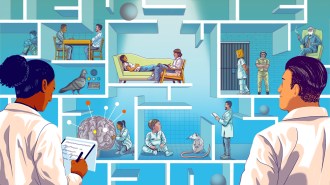 Psychology
PsychologyPsychology has struggled for a century to make sense of the mind
Research into what makes us tick has been messy and contentious, but has led to intriguing insights.
By Bruce Bower -
 Health & Medicine
Health & MedicineWhat science tells us about reducing coronavirus spread from wind instruments
Performers struggled to find evidence that would free them from musical lockdown, so they partnered with researchers to get some answers.
-
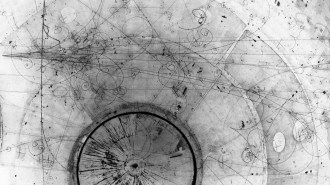 Particle Physics
Particle PhysicsHow particle detectors capture matter’s hidden, beautiful reality
Old and new detectors trace the whirling paths of subatomic particles.
-
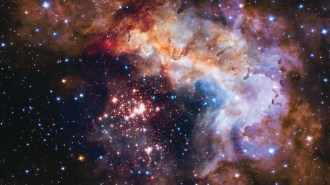 Planetary Science
Planetary ScienceA century of astronomy revealed Earth’s place in the universe
The past century of astronomy has been a series of revolutions, each one kicking Earth a bit farther to the margins.
-
 Science & Society
Science & SocietyWhat 20th century science fiction got right and wrong about the future of babies
A century of science has pushed the boundaries of human reproduction even beyond writers’ imaginations.
-
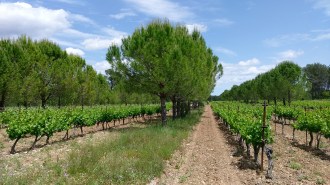 Earth
EarthMixing trees and crops can help both farmers and the climate
Agriculture is a major driver of climate change and biodiversity loss. But integrating trees into farming practices can boost food production, store carbon and save species.
-
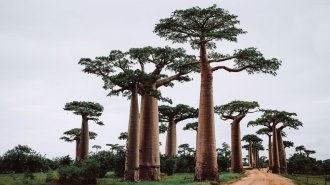 Climate
ClimateThe first step in using trees to slow climate change: Protect the trees we have
In all the fuss over planting trillions of trees, we need to protect the forests that already exist.
By Susan Milius -
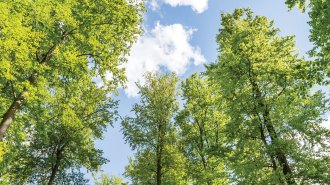 Environment
EnvironmentWhy planting tons of trees isn’t enough to solve climate change
Massive projects need much more planning and follow-through to succeed – and other tree protections need to happen too.
-
 Health & Medicine
Health & MedicineHow Hans Berger’s quest for telepathy spurred modern brain science
In the 1920s, psychiatrist Hans Berger invented EEG and discovered brain waves — though not long-range signals.
-
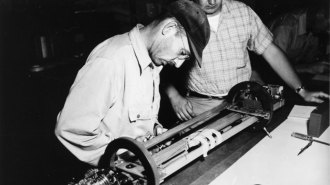 Earth
EarthA WWII submarine-hunting device helped prove the theory of plate tectonics
With a boost from World War II, the fluxgate magnetometer became a portable and invaluable tool.
-
 Physics
PhysicsMathematician J. Ernest Wilkins Jr. was a Manhattan Project standout despite racism
Black scientist J. Ernest Wilkins Jr. made nuclear physics calculations that helped build an atomic bomb.